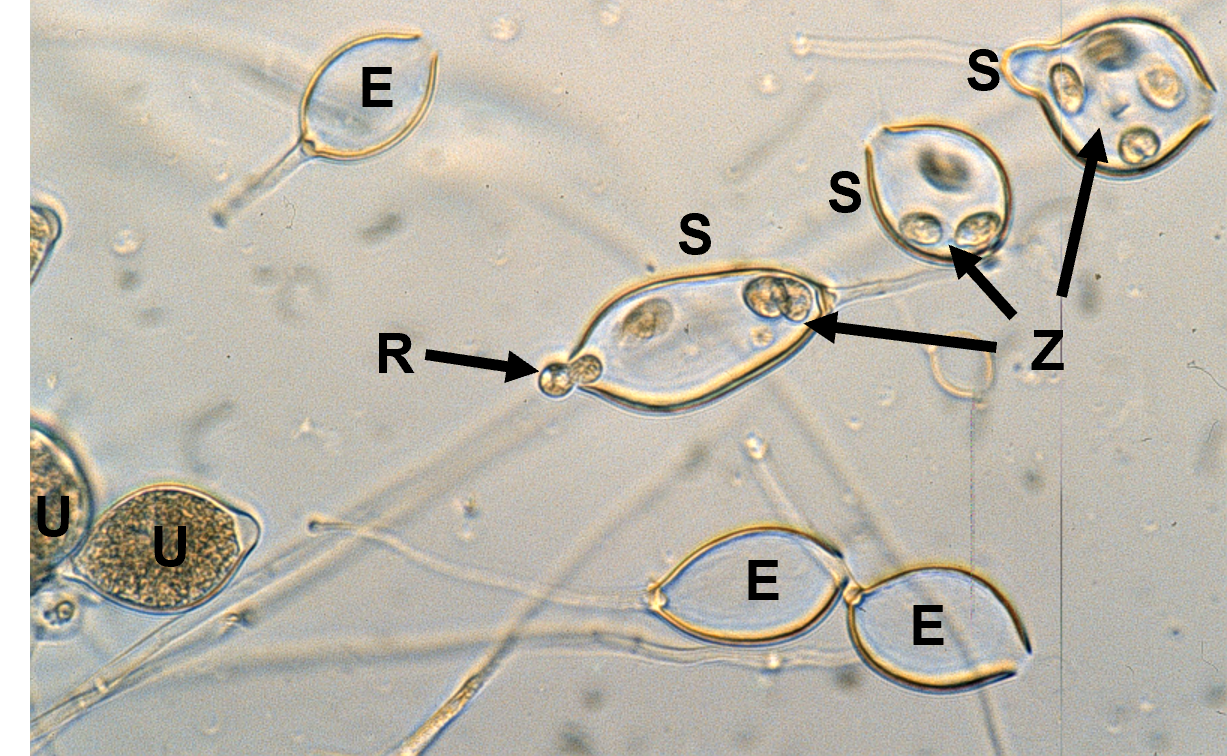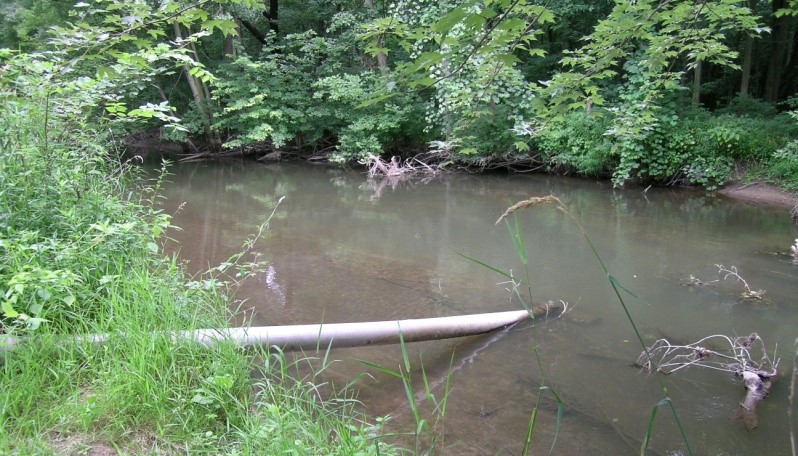Consider water source when irrigating vegetables during dry conditions
Phytophthora capsici can be introduced to crops when irrigating with surface water.

Michigan producers grow over 75,000 acres of vegetables that are susceptible to the soilborne pathogen, Phytophthora capsici, including cucumber, zucchini, summer and winter squash, watermelon, cantaloupe, pumpkin, pepper, eggplant, tomato and succulent bean. Phytophthora is favored by rain and warm temperatures and spreads readily via water. Phytophthora may be present in rivers, creeks, ponds, ditches and culverts. A study conducted in Michigan showed that Phytophthora in surface water irrigation sources was detected frequently but its presence varied from week to week.
Some growers have asked about testing a water source for the pathogen prior to irrigating their susceptible vegetables. Currently, water testing is not a service that is offered by Michigan State University. Testing could be misleading depending on how the sampling is conducted and would simply provide a snapshot of the pathogen status in the irrigation water at a single point in time. Continuous monitoring of an irrigation source for the pathogen would be needed to use surface water with confidence that it wasn’t contaminated with the highly destructive Phytophthora capsici.
Phytophthora may form many sporangia (spores) on the surface of the host plant and fruit following infection. If these sporangia come into contact with water, each sporangium will develop into 20 to 40 swimming zoospores. These zoospores may swim through saturated soil or may be carried in flowing water, including irrigation water. Swimming zoospores use electrical and chemical signals to find plant roots. Zoospores in water can survive and cause infection for days, even after they have ceased to swim. The Phytophthora capsici pathogen can be spread field-to-field via irrigation water and initiate epidemics on susceptible vegetables even in fields lacking a previous history of disease.

Phytophthora capsici is not likely to be found in surface water when the water temperature is greater than 77 degrees Fahrenheit or less than 57 F. Laboratory research has shown that infection of pickling cucumber fruits by Phytophthora zoospores in water may occur when water temperatures are 50-90 F but is more likely when the water is warm (greater than or equal to 65 F). Since vegetable producers usually irrigate during the warm summer months, the temperature of irrigation water is unlikely to limit infection.

If more zoospores are present in the water, infection of susceptible crops is more likely, even at lower water temperatures. It was discovered that the amount of infection observed once again depended on the numbers of zoospores in the water, and more fruits were infected at higher zoospore numbers. Zoospores were able to infect fruit even after being in water for five days, especially if high numbers of zoospores were present. Thus, zoospores can survive in water for days and still cause infection of susceptible hosts. Well water or water from well-fed ponds should be used to irrigate susceptible crops since Phytophthora can travel in surface runoff from infested fields into rivers, creeks, ponds, ditches and culverts.
Managing water in the field is key to managing Phytophthora, and drip irrigation systems are recommended to reduce splashing of infested soil onto fruit. If overhead irrigation must be used, reduced watering during fruiting may limit fruit infection.
MSU research found that algaecides work well in the laboratory setting to kill zoospores in water. Researchers in Virginia found that chlorine effectively killed zoospores in the lab setting. These products have the added advantage that they are already used to clear algal growth from filter intakes and irrigation lines. Future work in this area may yield options for vegetable producers to treat surface water sources so that they may be safely used for irrigation.
This material is based upon work that is supported by the National Institute of Food and Agriculture, U.S. Department of Agriculture, under award number 2020-5118-32139 and by MSU Project GREEEN.



 Print
Print Email
Email




